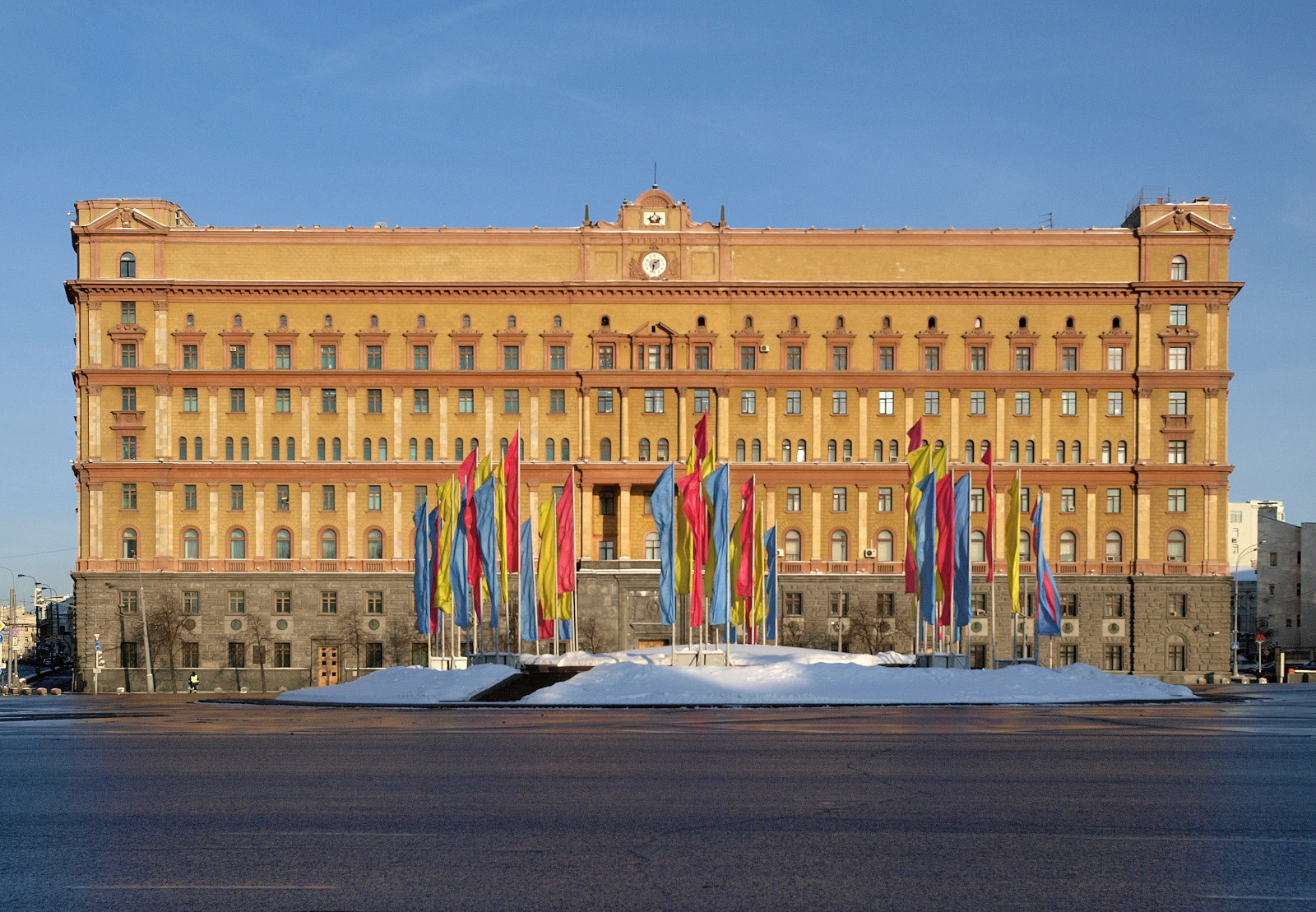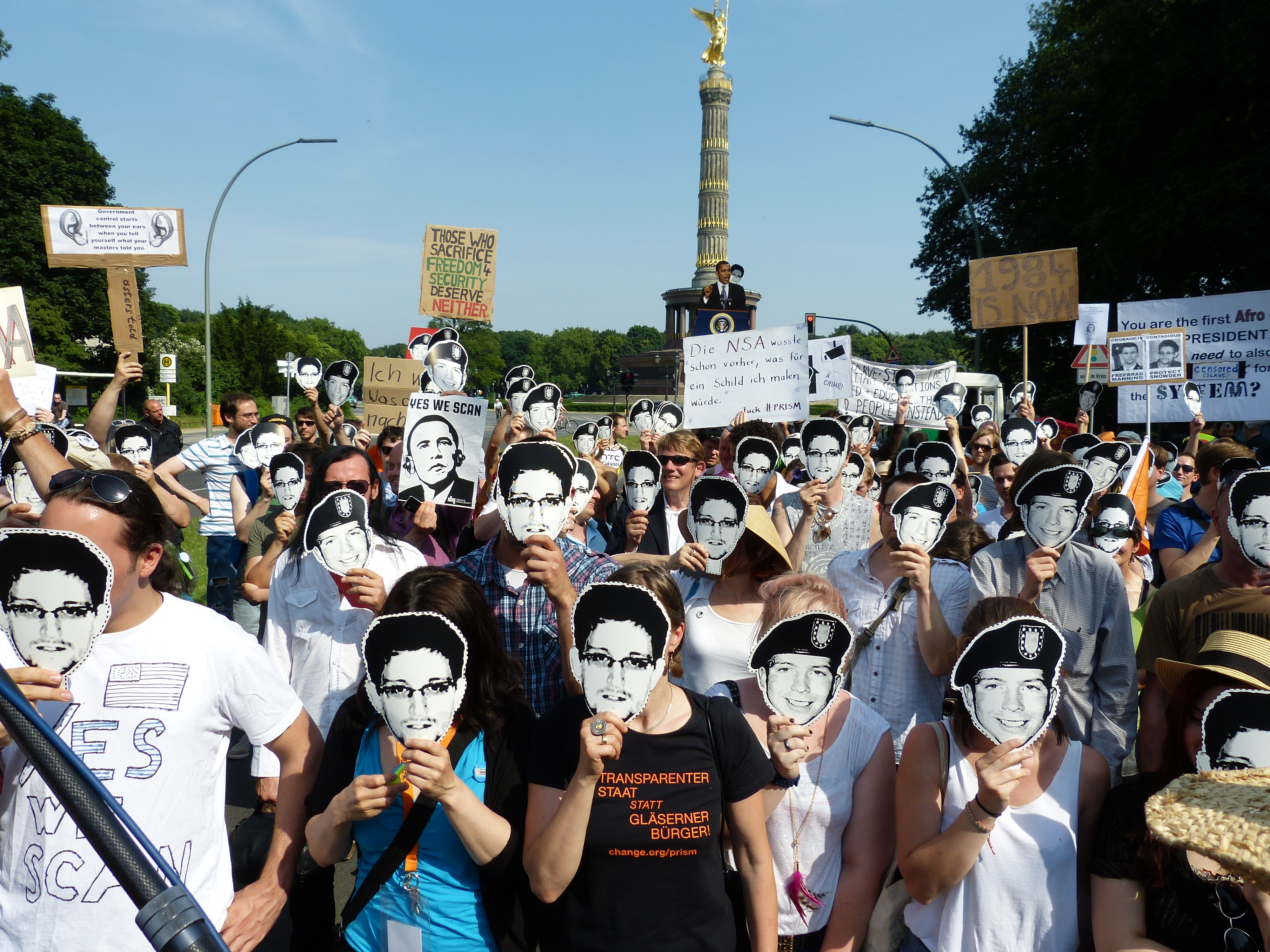|
FAPSI
FAPSI (russian: РӨРҗРҹРЎРҳ) or Federal Agency of Government Communications and Information (FAGCI) (russian: РӨРөРҙРөСҖалСҢРҪРҫРө РҗРіРөРҪСӮСҒСӮРІРҫ РҹСҖавиСӮРөР»СҢСҒСӮРІРөРҪРҪРҫР№ РЎРІСҸР·Рё Рё РҳРҪС„РҫСҖРјР°СҶРёРё) was a Russian government agency, which was responsible for signal intelligence and security of governmental communications. The present-day FAPSI successor agencies are the relevant departments of the Federal Security Service (FSB) and Foreign Intelligence Service (SVR) as well as the Special Communications Service of Russia (''Spetssvyaz'') (part of the Federal Protective Service of the Russian Federation) (FSO RF). History Creation FAPSI was created from the 8th Main Directorate (Government Communications) and 16th Directorate (Electronic Intelligence) of the KGB. It is the equivalent to the USA National Security Agency. On September 25, 1991, Soviet president Mikhail Gorbachev dismantled the KGB into several independent departments. One of them became ... [...More Info...] [...Related Items...] OR: [Wikipedia] [Google] [Baidu] |
Aleksandr Starovoitov
Aleksandr Vladimirovich Starovoitov (russian: РҗР»РөРәСҒР°РҪРҙСҖ ВлаРҙРёРјРёСҖРҫРІРёСҮ РЎСӮР°СҖРҫРІРҫР№СӮРҫРІ; 18 October 1940 вҖ“ 17 July 2021) was an officer of the Soviet and Russian security services and academic, specialising in communications technologies. He reached the rank of Army general (Russia), army general, and was awarded the title of Hero of the Russian Federation. Starovoitov's education and early career was spent specialising in electronics and communications, and after obtaining qualifications and practical experience in this area, he began research work at the Penza Scientific Electrotechnical Research Institute. Over the years he rose to head the institute, and became general director of the "Krystal" Research and Production Association, working under the Ministry of Communication Equipment Industry (Soviet Union), Ministry of Communication Equipment Industry. During this time he oversaw the development of information security systems which were employed i ... [...More Info...] [...Related Items...] OR: [Wikipedia] [Google] [Baidu] |
Federal Security Service (Russia)
The Federal Security Service of the Russian Federation (FSB) RF; rus, РӨРөРҙРөСҖалСҢРҪР°СҸ СҒР»СғР¶РұР° РұРөР·РҫРҝР°СҒРҪРҫСҒСӮРё Р РҫСҒСҒРёР№СҒРәРҫР№ РӨРөРҙРөСҖР°СҶРёРё (РӨРЎР‘ Р РҫСҒСҒРёРё), Federal'naya sluzhba bezopasnosti Rossiyskoy Federatsii, fКІЙӘdКІЙӘЛҲralКІnЙҷjЙҷ ЛҲsluКҗbЙҷ bКІЙӘzЙҗЛҲpasnЙҷstКІЙӘ rЙҗЛҲsКІijskЙҷj fКІЙӘdКІЙӘЛҲratsЙЁЙӘ) is the principal security agency of Russia and the main successor agency to the Soviet Union's KGB; its immediate predecessor was the Federal Counterintelligence Service (FSK) which was reorganized into the FSB in 1995. The three major structural successor components of the former KGB that remain administratively independent of the FSB are the Foreign Intelligence Service (SVR), the Federal Protective Service (FSO), and the Main Directorate of Special Programs of the President of the Russian Federation (GUSP). The primary responsibilities are within the country and include counter-intelligence, internal and border security, count ... [...More Info...] [...Related Items...] OR: [Wikipedia] [Google] [Baidu] |
Special Communications Service Of Russia
The Special Communications and Information Service of the Federal Protective Service of the Russian Federation (Spetssvyaz, ''Spetssviaz''; russian: РЎР»СғР¶РұР° СҒРҝРөСҶиалСҢРҪРҫР№ СҒРІСҸР·Рё Рё РёРҪС„РҫСҖРјР°СҶРёРё, РЎРҝРөСҶСҒРІСҸР·СҢ Р РҫСҒСҒРёРё) is a cryptologic intelligence agency of The Federal Protective Service of Russia responsible for the collection and analysis of foreign communications and foreign signals intelligence, as well as protecting Russian government communications and information systems, which involves information security and cryptanalysis/cryptography. History The Service was established on March 11, 2003 as the successor of FAPSI that was created from the 8th Main Directorate (Government Communications) and 16th Directorate (Electronic Intelligence) of the KGB. On September 25, 1991, following the August Coup, Soviet president Mikhail Gorbachev dismantled the KGB into several independent departments. One of them became the Committee on Governmen ... [...More Info...] [...Related Items...] OR: [Wikipedia] [Google] [Baidu] |
Federal Security Service
The Federal Security Service of the Russian Federation (FSB) RF; rus, РӨРөРҙРөСҖалСҢРҪР°СҸ СҒР»СғР¶РұР° РұРөР·РҫРҝР°СҒРҪРҫСҒСӮРё Р РҫСҒСҒРёР№СҒРәРҫР№ РӨРөРҙРөСҖР°СҶРёРё (РӨРЎР‘ Р РҫСҒСҒРёРё), Federal'naya sluzhba bezopasnosti Rossiyskoy Federatsii, fКІЙӘdКІЙӘЛҲralКІnЙҷjЙҷ ЛҲsluКҗbЙҷ bКІЙӘzЙҗЛҲpasnЙҷstКІЙӘ rЙҗЛҲsКІijskЙҷj fКІЙӘdКІЙӘЛҲratsЙЁЙӘ) is the principal security agency of Russia and the main successor agency to the Soviet Union's KGB; its immediate predecessor was the Federal Counterintelligence Service (FSK) which was reorganized into the FSB in 1995. The three major structural successor components of the former KGB that remain administratively independent of the FSB are the Foreign Intelligence Service (SVR), the Federal Protective Service (FSO), and the Main Directorate of Special Programs of the President of the Russian Federation (GUSP). The primary responsibilities are within the country and include counter-intelligence, internal and border security, counter ... [...More Info...] [...Related Items...] OR: [Wikipedia] [Google] [Baidu] |
Classified Information In Russia
In the Russian Federation, a state secret (russian: Р“РҫСҒСғРҙР°СҖСҒСӮРІРөРҪРҪР°СҸ СӮайРҪР°; ''Gosudarstvennaya Tayna''), according to the definition adopted in the ''Official Secrets Act of the Russian Federation,'' is information protected by the state on its military, foreign policy, economic, intelligence, counterintelligence, operational and investigative and other activities, dissemination of which could harm state security. Protection of State Secrets in the Russian Federation Legislation of the Russian Federation on State Secrets was based on the Constitution of the Russian Federation, Federal Law "On Security" and "On State Secrets". The list of information constituting state secrets shall be determined by federal law "On State Secrets" (Section II), under which inter-ministerial Commission for the Protection of State Secrets generates a list of information classified as state secrets. Public authorities, whose leaders have the authority to designate information as s ... [...More Info...] [...Related Items...] OR: [Wikipedia] [Google] [Baidu] |
Federal Protective Service (Russia)
The Federal Protective Service, or the Federal Guard Service (russian: РӨРөРҙРөСҖалСҢРҪР°СҸ СҒР»СғР¶РұР° РҫС…СҖР°РҪСӢ, РӨРЎРһ, Federalnaya sluzhba okhrany, FSO) of the Russian Federation, official name in English Federal Guard Service of the Russian Federation, is a federal government agency concerned with the tasks related to the protection of several high-ranking state officials, mandated by the relevant law, including the President of Russia, as well as certain federal properties. It traces its origin to the USSR's Ninth Chief Directorate of the KGB and later Presidential Security Service (SBP) led by KGB general Alexander Korzhakov. On May 27, 1996, the law "On State Protection" reorganized the GUO (Glavnoye Upravlenie Okhrani) into the FSO (Federal Protection Service). Under article 7 of the law, "the President of the Russian Federation, while in office, shall not be allowed to forgo state protection." FSO includes the Russian Presidential Security Service. This presiden ... [...More Info...] [...Related Items...] OR: [Wikipedia] [Google] [Baidu] |
Communications Security Establishment
The Communications Security Establishment (CSE; french: Centre de la sГ©curitГ© des tГ©lГ©communications, ''CST''), formerly (from 2008-2014) called the Communications Security Establishment Canada (CSEC), is the Government of Canada's national cryptologic agency. It is responsible for foreign signals intelligence (SIGINT) and communications security (COMSEC), protecting federal government electronic information and communication networks, and is the technical authority for cyber security and information assurance. Administered under the Department of National Defence (DND), the CSE is accountable to the Minister of National Defence through its deputy head, the Chief of CSE. The National Defence Minister is in turn accountable to the Cabinet and Parliament. The current Chief of the CSE is Caroline Xavier, who assumed the office on 31 August 2022. The Agency recently built a new headquarters and campus encompassing . The new headquarters totals a little over and is adjac ... [...More Info...] [...Related Items...] OR: [Wikipedia] [Google] [Baidu] |
Foreign Intelligence Service (Russia)
The Foreign Intelligence Service of the Russian Federation ( rus, РЎР»СғР¶РұР° РІРҪРөСҲРҪРөР№ СҖазвРөРҙРәРё Р РҫСҒСҒРёР№СҒРәРҫР№ РӨРөРҙРөСҖР°СҶРёРё, r=Sluzhba vneshney razvedki Rossiyskoy Federatsii , p=ЛҲsluКҗbЙҷ ЛҲvnКІЙӣКӮnКІЙӘj rЙҗЛҲzvКІЙӣtkКІЙӘ) or SVR RF ( rus, РЎР’Р Р РӨ) is Russia's external intelligence agency, focusing mainly on civilian affairs. The SVR RF succeeded the First Chief Directorate (PGU) of the KGB in December 1991.The Security Organs of the Russian Federation: A Brief History 1991вҖ“2004' by Jonathan Littell, Psan Publishing House 2006. The SVR has its headquarters in the Yasenevo District of Moscow. Unlike the Russian Federal Security Service (FSB), the SVR is tasked with intelligence and espionage activities outside the Russian Federation. It works together with the Russian Main Intelligence Directorate ( rus, ГлавРҪРҫРө СҖазвРөРҙСӢРІР°СӮРөР»СҢРҪРҫРө СғРҝСҖавлРөРҪРёРө, r= Glavnoye razvedyvatel'noye upravleniye, p= ЛҲglavnЙҷjЙҷ rЙҗzЛҲvКІ ... [...More Info...] [...Related Items...] OR: [Wikipedia] [Google] [Baidu] |
National Security Agency
The National Security Agency (NSA) is a national-level intelligence agency of the United States Department of Defense, under the authority of the Director of National Intelligence (DNI). The NSA is responsible for global monitoring, collection, and processing of information and data for foreign and domestic intelligence and counterintelligence purposes, specializing in a discipline known as signals intelligence (SIGINT). The NSA is also tasked with the Information assurance, protection of U.S. communications networks and information systems. The NSA relies on a variety of measures to accomplish its mission, the majority of which are clandestine operations, clandestine. The existence of the NSA was not revealed until 1975. The NSA has roughly 32,000 employees. Originating as a unit to decipher coded communications in World War II, it was officially formed as the NSA by President Harry S. Truman in 1952. Between then and the end of the Cold War, it became the largest of the U.S. ... [...More Info...] [...Related Items...] OR: [Wikipedia] [Google] [Baidu] |
Cybersquatting
Cybersquatting (also known as domain squatting) is the practice of registering, trafficking in, or using an Internet domain name, with a bad faith intent to profit from the goodwill of a trademark belonging to someone else. The term is derived from "squatting", which is the act of occupying an abandoned or unoccupied space or building that the squatter does not own, rent, or otherwise have permission to use. Terminology In popular terms, вҖңcybersquattingвҖқ is the term most frequently used to describe the deliberate, bad faith abusive registration of a domain name in violation of trademark rights. However, precisely because of its popular currency, the term has different meanings to different people. Some people, for example, include вҖң warehousing,вҖқ or the practice of registering a collection of domain names corresponding to trademarks with the intention of selling the registrations to the owners of the trademarks, within the notion of cybersquatting, while others distingu ... [...More Info...] [...Related Items...] OR: [Wikipedia] [Google] [Baidu] |
Vladimir Putin
Vladimir Vladimirovich Putin; (born 7 October 1952) is a Russian politician and former intelligence officer who holds the office of president of Russia. Putin has served continuously as president or prime minister since 1999: as prime minister from 1999 to 2000 and from 2008 to 2012, and as president from 2000 to 2008 and since 2012. Putin worked as a KGB foreign intelligence officer for 16 years, rising to the rank of lieutenant colonel before resigning in 1991 to begin a political career in Saint Petersburg. He moved to Moscow in 1996 to join the administration of president Boris Yeltsin. He briefly served as director of the Federal Security Service (FSB) and secretary of the Security Council of Russia, before being appointed as prime minister in August 1999. After the resignation of Yeltsin, Putin became Acting President of Russia and, less than four months later, was elected outright to his first term as president. He was reelected in 2004. As he was constitut ... [...More Info...] [...Related Items...] OR: [Wikipedia] [Google] [Baidu] |



